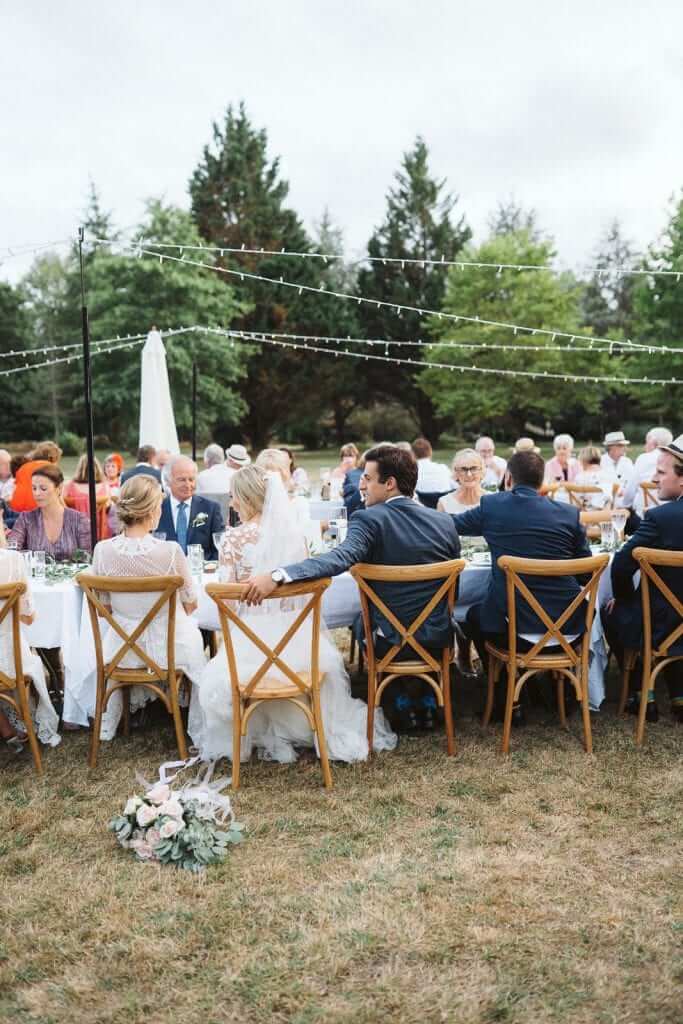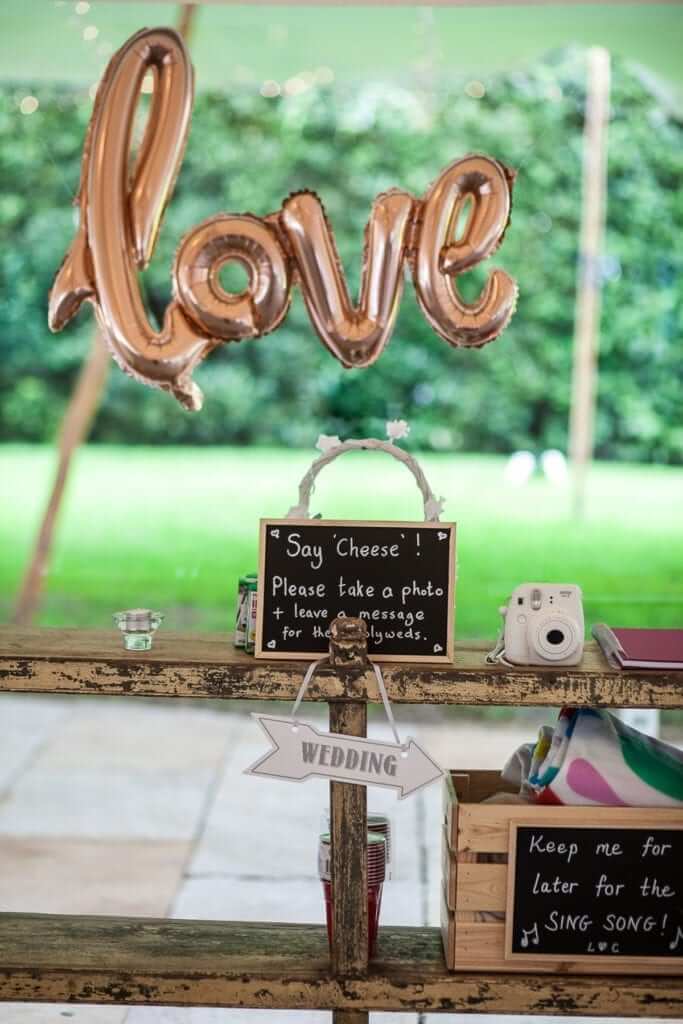Wedding Guest List Etiquette….Irish Style

We’re a nation of people pleasers so I believe that the wedding guest list stress hits us 10x more than any other nation. I found this such a mental drain for my own wedding and I know that so many feel the same way.
When you start the planning process, one of the first steps is to roughly jot down who you want to invite to get an idea of numbers as you will need to know your numbers before approaching your venue. If we take a typical 140 sized wedding, thats 70 couples and then when you split that 50/50 between you as a couple, that’s only 35 couples per couple member. Go even further and think you have to include you both, thats one couple gone, both parents, the wider bridal party and then siblings…..you could have 10 couples gone so now you are down to your final 25 couples.
There’s a few ways to conserve your numbers or as I call it…. Cut the fat (I will definitely get lynched by the Mammies on that one!). This won’t be relevant for everyone but there are some ways that might help.
This is probably one of the most challenging parts of the wedding planning process for every couple. I know it was certainly a challenge for me when I was planning.
Getting Started
When starting your wedding planning, I always advise getting all of the guests names in to an excel sheet. You need to get an idea of numbers anyway so no time like the present to start building your list. Plus, I tend to group everyone in to their relevant circles as it means later on, you will have structure for your table plan.
Once you have every possible name down, I want you to carve up that list, Group A is the non- negotiable has to be there and then group B (and maybe C) are the next wave.
Next, you will then start the process of mapping budget and of course availability at your preferred venue. Once you secure your venue, you may find that there are final number implications from either a capacity perspective, as in the room can only hold so many or there could be ‘minimum numbers’ for your preferred date. Minimum numbers are common across all venues, and this is where they stipulate a minimum number of guests who have to be present at a certain rate for you to either get that date or that package.
Once you have a clear idea of this number, you tend to find most couples then need to reverse engineer that invite list into that format. Bear in mind there is roughly 20% drop off from the numbers you initially invite.
Numbers Hack
I have a tactic for managing the rhythm of your list to ensure you max out that full list.
To start, get ‘Save The Dates’ out to your Group A list and put in a note suggesting that if guests know at this point if they cannot make it, please let us know. Remember, a Save the Date doesn’t require an RSVP but you can always get in touch with some guests who might be abroad to get a sense if they will travel home for your big day.
Once you get the group A out, you can then proceed to send the remaining save the dates based on your preferred final number.
Next, as you go to send out your official invitations, stagger the release of your invites. From a budgetary perspective, you may not change the rsvp dates on all but sending out in waves can give you an idea of final confirmation to allow you to move through any extra people you would like to ask in the absence of some guests. As the decline invites come in, get the next invites out! Yes, it is labour intensive but if you want max out your capacity without people realising they were on a B list, then this is subtle way to go.
With that in mind, how do you decide who gets on the list in the first place. There are some general thoughts to consider;
Wedding Guest List Considerations
-
- Relationship: Consider your relationship with each potential guest. A good rule of thumb is to think about whether you’ve had a conversation with them in the last year. If you haven’t, and they’re not family, they might not make the cut. I also had a rule whereby I didn’t want to be meeting someone for the first time at the church doors.A real bride and follower on Instagram, Chantelle Wallace got in touch with her approach;“We had three rules; 1. Are they in an active group chat with you?2. Have you seen them since Covid?3. Would you be smiling as you see them when you walk down the aisle!”
- Reciprocity: If you were invited to their wedding, there might be an expectation that they will be invited to yours. However, this isn’t a hard and fast rule and will depend on your current relationship.
- Plus-Ones: Decide early on about your stance on plus-ones. If you’re inviting single friends, will they be allowed to bring someone? Or do you have a group that is happy to come as a group without partners. It’s generally accepted that married, engaged, or couples living together are invited together. For single friends, consider their circumstances – if they don’t know anyone else at the wedding, it might be kind to give them a plus one. But if there is a group and they know each other, they may be very happy going together and not having to bring someone for the sake of it and having to mind them for the night. Think of the work gang, college friends etc. Think of the groups where you don’t really socialise with their other halves anyway. If there are some people who don’t have a significant other, don’t give them a plus one. They will be bringing someone for the sake of it and if you are looking to keep this tight, that’s the number one inflation.
-
- Family Obligations: Family can often be the trickiest part of compiling a wedding guest list. Parents may have expectations about inviting certain relatives or family friends. Traditionally, if parents are contributing financially to the wedding, they may feel entitled to invite some friends. It’s important to discuss this early on and set clear boundaries. I look at my friends now and they are so so good to my kids. I’d love to think that they would be at my kids weddings when they’re grown up. However, not all parents friends are that close to you. Parents can be very put out if their friends aren’t invited. Whilst this is harsh for your parents, remember, this isn’t their wedding, it is yours and you are more than likely paying for the whole thing. You decide who gets to come. If you are struggling with numbers, you have to make tough decisions. Parents some times offer to pay for their friends and if that suits you then fine.If your budget or venue size doesn’t allow for extra guests, explain this politely but firmly.
- Inviting Family: You could just invite Aunts and Uncles, leave cousins off the table (if you’re not close to them). For many, cousins are a non-negotiable and they wouldn’t dream of not having them there. You need to agree on that dynamic. Some have told me that they didn’t invite any extended family members as they weren’t close but had a party at home another time for the aunts, uncles and cousins. The couple explained that they were having a very small meal to celebrate their wedding but will be having an intimate party at a later date. There was a mixed response but everyone had a good time in the end.
- Work Colleagues: If you’re considering inviting work colleagues, it’s usually an all-or-nothing situation to avoid hurt feelings. But remember, every addition to your guest list will have a cost implication.
- Distance: If certain guests live far away, consider whether they’d be able to attend your wedding. While it’s often nice to invite them, you can expect a certain percentage of long-distance invites to decline
- Uninvited Guests: If someone wrongly assumes they’re invited, tackle it head-on with honesty. Let them know that due to budget or venue constraints, you’re having to limit the guest list. Most people will understand. I get chronic second-hand embarrassment when I hear stories about this. It feels like one of those awkward scenes from The Office!
- Children at Weddings: If you decide to have a child-free wedding, it’s important to make this clear. You can do this in 2 ways, just have the parents’ names on the invites or, some choose to add a line to say that they have chosen to have an adult only wedding. Don’t over-explain yourself. Just make the statement and move on. If someone asks to bring their children despite this effort, gently remind them of your decision. I’ve heard of weddings where even with all the above effort, some people arrive with their kids on the day, and this can create havoc as some close family may have been asked to not have their kids present. Bear in mind if you are asking a breast-feeding mum to your wedding, logistically that can be difficult and some could benefit from bringing a grandparent to stay in the hotel with the baby while parents go to the wedding but also have availability to feed the baby. One thing to look out for, kids are part of the headcount / final numbers. I used to see couples assume that kids were a floating number that is outside of the core wedding number. They are still sitting on a chair and take up the capacity so therefore are part of the headcount. They are generally not charged at full price but just to bear in mind. Making the decision on bringing kids or not bringing kids is a very personal choice.
- Table Arrangements: Some couples can get a bit adventurous at this point. When creating the seating plan, there’s a few considerations. Mixing up guests can encourage mingling, but also consider people’s comfort. If some guests only know a few others, it’s usually best to seat them together. Try to strike a balance between introducing new people and ensuring everyone feels comfortable.
- Feuding Family Members: If there are family members who don’t get along, make sure they’re seated at different tables. It’s your day, and you shouldn’t have to worry about potential conflicts.
- Prioritising Tables: Traditionally, family, and close friends are seated closer to the top table, but it’s entirely up to you. Try to consider the feelings of all guests and avoid making anyone feel less important. Many couples are opting out of the signature top table and opting for a table in the centre of the room so that they are balanced amongst their entire party.
- The Afters Party: The ‘afters’ or evening reception is still a thing! It allows you to invite more people to celebrate with you, even if they weren’t at the main ceremony or meal. If your budget allows for it, and you have a large network of friends, work mates or extended family, it can be a good way to include more people in your celebration. This may not work if your venue is not close to where you live.
Also, a big one for couples! You as the couples are part of the head count so don’t forget to add 2 to the numbers!
It’s very important to remember, it’s your day, and while etiquette is important, what matters most is that you as a couple are comfortable and happy with the arrangements. Trust your gut and if it feels right to include some and not others, then just go with it.
AND you will not please everyone….I repeat…. You will not please everyone! It’s very important at this point to understand that you will not please everyone. You are going to have so many opinions thrown at you in respect to the decisions you make. Stand firm, you are not responsible for how others think you should be hosting your big day. You are only responsible for creating the day you want under the terms you want.
I’ll leave you with this final note. I did a lovely Podcast with Chupi Sweetman, and she had a very intimate wedding and her rationale for guest choices was, if her leg was falling off at 5am in the morning, who would she call. That was the criteria!






